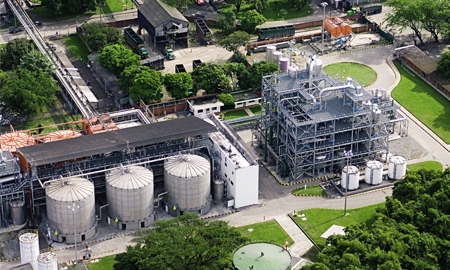Colombia’s progress on matters of security has enabled foreign investment to grow at a very fast pace. In addition to this, commodities such as oil, coal and other minerals have contributed to the production growth and, as a consequence, an increase in exports. According to Harold Eder, President of sugar cane business pioneer Grupo Manuelita, “These two elements have been key in the country’s economic boom.”
With 11% of Colombia’s GDP, the country’s gate to the Pacific, Valle del Cauca, is an excellent option to consider at the time of investing. For Mr. Eder there are three primary reasons why this region is so important. The first is its strategic geographical position.
“Half of Colombia’s exports go through the ports of Buenaventura and Cali, and Valle del Cauca is the entrance and exit towards Buenaventura and the Pacific,” explains Mr. Eder.
Second to this are the very special conditions that have enabled the production of sugar cane. The weather and the quality of the soil make growing possible throughout the year, encouraging other types of industries to develop. And third, but not least, is that the valley has always been open to foreign investment. Since the 1950’s, there have been multinational companies established there, and this openness means the region maintains connections with the rest of the world.
In 1864, the pioneer in the sugar cane business, Santiago Martín Eder, founded Grupo Manuelita. It was one of the first companies to produce refined sugar, sugar cane alcohol, and to go beyond Valle del Cauca and explore eastern territories to start producing palm oil and biodiesel. The sugar cane business is the strongest one for the company, represented by Manuelita in Colombia and Laredo in Peru. Nowadays, the group is present in four different countries: Colombia, Peru, Chile and Brazil. This visionary and innovative company is one of the oldest in the region and has earned respect not only locally but internationally as well.
This company has definitely taken a visionary approach toward every decision, and it is continuing with this model by betting on a solution for the growing demand of energy. While the world still depends on non-renewable energy, the group has focused on the food and the renewable energy sectors. This emerging kind of energy is based on the sugar cane alcohol and palm biodiesel.
Grupo Manuelita is looking for “the possibility of generating energy not only to make our factories run, but generating extra energy which could be sold to the electrical market,” explains Mr. Eder. And this is not only an alternate kind of energy, the interesting part is that it has a lower impact on the environment; it will reduce the amount of gases released and protect the ozone layer.
Besides this initiative, there are several other measures Manuelita and its group have been talking over. Their idea is to propose environmentalist and social responsibility actions that are at the same time integrated with the business. “That’s why we are insisting on developing environment friendly products,” said Manuelita’s President.
The company is in the top 100 best industries to work in Colombia and generates around 7,000 jobs, making it one of the biggest employers of the country as well. And Manuelita has reached this position because of its social initiatives, taking care of every sector of its employees’ life: education, housing, health, and any other aspect that could influence their quality of life.
A perfect example of this is Laredo, the sugar cane factory situated in Peru. “We have around 900 cane growers, with an average of between two and three hectares. We provide them with technical assistance, financing systems and training so they can manage their business in a successful way,” says Mr. Eder proudly.

0 COMMENTS